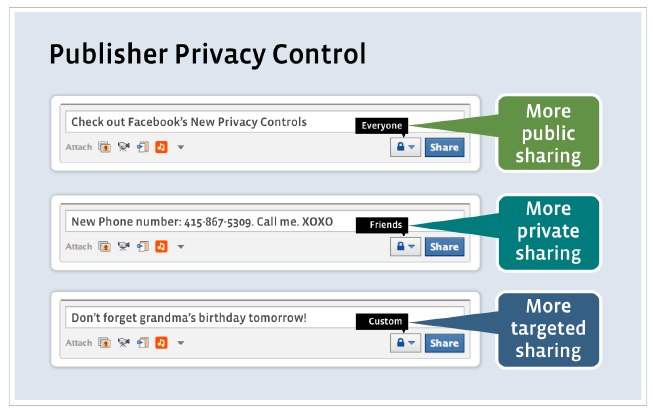Facebook's privacy settings: users get more control as wall gets torn down

Facebook is preparing to roll out new privacy settings - some of which includes tearing down the closed Facebook wall and opening the data to the general public. (Statement, Techmeme)
But before anyone goes into panic mode, it's important to note that the company is going to great lengths to be transparent about what it's doing and is giving users full control - repeat, full control - over who will see what on their profiles. (You might recall that Facebook has taken a PR beating in the past for making some changes and not telling anyone, such as the redesign and Terms of Service fiasco.)
The privacy setting changes won't happen immediately and Facebook is moving slowly on the rollout to make sure that people understand exactly what they're doing with their information. That includes testing six different transitional pages - pop-up screens when users log-on to walk them through their old settings and help them pick new ones - to determine which is the easiest for users to understand.
In most cases, Facebook is adding to the site - tools to determine who can see your posts, notes, links, photos and so on. But it's also taking away one thing - regional networks
When the site was opened to the general public, regional networks were created to help group folks under a common umbrella, just as networks had done for schools and workplaces. But that became too unruly and sharing with people in your network meant that the only real thing you had in common with them was where you lived.
As for opening your information to the general public, now that we have vanity URLs on Facebook, it's easier for anyone - yes, non Facebook members, too - to find a public profile page. In some cases - say you're in a band or you're running for office - you might want "everyone" to see your profile, including people outside the wall.
In other cases, users may choose to share only with their confirmed friends - and that's fine, too. Here's one better: users can create custom settings so that pictures, for example, can be shared only with certain Facebook friends, maybe family members but not co-workers.
Here's the thing about sharing with "everyone," though. Over time, Facebook has plans to make the data indexable and available off-site. Yup, that means information from your Facebook page could someday show up in Google search results.
The company was clear to note that these changes have nothing to do with advertising strategies - for now. Over time, as users either open up or further restrict access to their information, it will create new data points and opportunities for advertisers.
There are two things that people, in general, are very squeamish about: Change and Privacy. From the presentation I tuned in to and the details that Facebook execs provided, I'm convinced - as of now - that this is a good positive step.
As a user, I'm all for simplification as it relates to privacy settings and full control over my information - and I know I'm not the only one. Facebook finally seems to understand that.